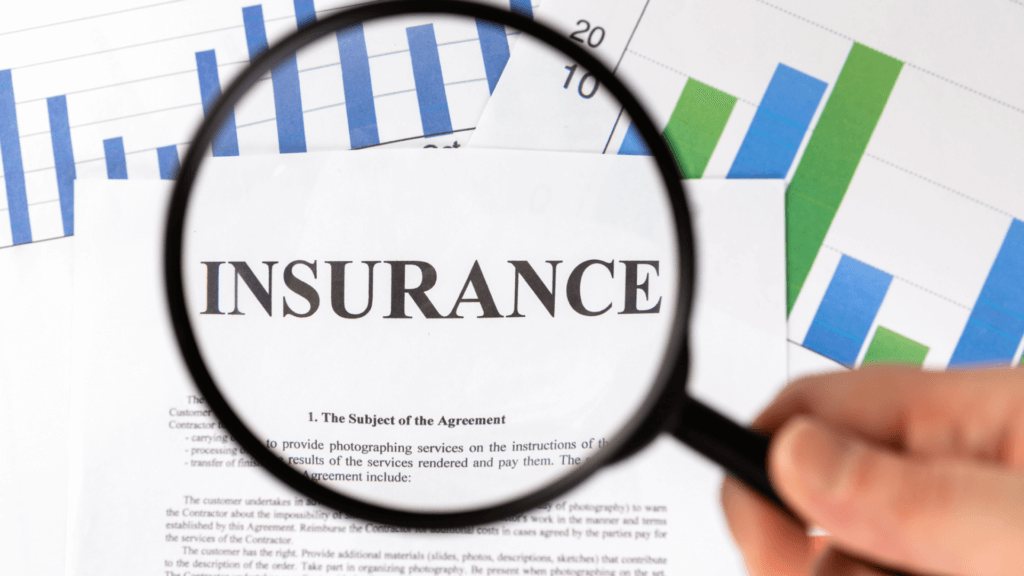
Purchasing insurance for a commercial property isn’t always a straightforward process. It can be easy to assume it’s similar to obtaining renters or car insurance, however, numerous elements must be considered when ensuring a business is insured against any unexpected incident. One question that often arises when insuring a commercial property is the difference between property and casualty insurance. Having a good understanding of both types of policies can keep owners aware of what can and cannot be covered under these specific coverages.
The Difference Between Property and Casualty Insurance
Starting or expanding a business is an incredibly exciting moment. While owners may be elated at the idea of offering their goods and / or services to the public, they must also protect their new investment with comprehensive insurance coverage. This process can quickly become confusing if owners are unfamiliar with the different policies they must obtain to be fully protected from various perils, such as property and casualty insurance.
Property and casualty insurance, or P&C insurance as it is commonly referred to, are separate types of policies that are so closely related, many business owners don’t realize they are two different types of policies. Knowing the difference between the two can keep policyholders more empowered and informed on their insurance needs.
Property Insurance
Property insurance provides coverage when a business’s assets or property are damaged or destroyed. This includes coverage for buildings owned by the company, as well as their contents, such as inventory, assets, equipment, and employee belongings. It can protect against loss through damage to that property, loss of income that you would have otherwise generated from that property, and losses in the form of money that you would not have spent if the property hadn’t been destroyed or damaged.
Additionally, there are other more specialized types of property insurance that business owners should have on hand before opening their doors. For example, business interruption insurance protects a company against further financial losses when the business cannot operate due to property damage. Builder’s risk insurance is another more specialized form of property insurance that protects a property that is damaged while being built.
Business owners must obtain property insurance as soon as possible. Without it, the commercial property owner may be held liable for any damage that occurs as well as the replacement of anything lost, damaged, or destroyed. However, business owners must read their policies carefully as not every insurer provides the same standard terms and / or coverage.
Casualty Insurance
Casualty insurance is also sometimes referred to as liability insurance. Most often these policies are utilized to protect a business in the event it is sued or threatened with a liability claim by a third party for bodily injury and / or property damage. For example, if a business is found to be at fault for an injury that took place on its premises, then casualty insurance can be utilized to help cover any losses. Commercial general liability and premises liability insurance, for instance, are forms of casualty insurance.
Casualty insurance is often one of the first types of policies business owners obtain before opening their doors. This is because in most cases financial institutions require all companies they work with to already have this type of policy in place. Without obtaining casualty insurance, business owners can have an incredibly difficult time obtaining financing or even qualifying for the other types of insurance they need.
While there are several types of business insurance for owners to consider purchasing, a business owners policy often includes coverage offered in both property and casualty policies. It provides liability coverage if a company inadvertently harms someone or a customer is injured on the business’s property. It also protects the building the company operates out of and the contents within it.
Key Questions to Ask When Insuring a Commercial Property
A business will inevitably run into several challenges during its time in operation. However, it can sometimes be difficult for busy owners to know whether or not they have the right coverage, if there are any gaps in coverage, and even how much they may need to pay for coverage. Because of this, it’s imperative to know the right questions to ask insurers to ensure there is no confusion when it comes to coverage. Some of these include:
How Much Should Coverage Cost?
Because the budget of a business is crucial for its survival, one of the questions often asked when obtaining commercial property insurance is how much coverage should cost. Generally, the cost of a commercial policy depends on certain specifics like the location of the business, the nature of the business, and more.
Most insurers will want to know what the primary use of the property will be to assess the potential risks of damage. For instance, if a business is a restaurant, it could have a higher risk of damage due to fire than an office space would. In addition, the general location of the business will affect coverage costs. If the property is in Galveston, Texas as opposed to Dallas, Texas, for instance, it will likely cost more to insure due to the proximity to water and the likelihood of a hurricane and / or flood. Location can also pertain to how close the business is to emergency services. A property that is closer to a fire station, for example, may be less costly to insure than one that is many miles away from any emergency services.
What Exclusions Should Owners Look For?
Business owners can be at a great disadvantage if they find they have a gap or several gaps in coverage. This can make them incredibly vulnerable to out-of-pocket costs. Not only that, but it can be very difficult for even experienced business owners to know they have gaps in coverage due to how nuanced and complex policy language can be.
Insureds should take the time to thoroughly review their policies with trusted legal counsel to ensure no gaps in coverage are present. Some of the most common areas wherein commercial policyholders may find they have coverage gaps can include damage due to a flood, earthquake, or windstorm. Policyholders should also look to see whether their policies have an arbitration provision as well as any roof and cosmetic damage endorsements.
What is a Coinsurance Provision?
Some policyholders may be unaware their policy contains a coinsurance provision. Coinsurance refers to the process of splitting and spreading the amount of risk across multiple parties. In commercial property insurance, this applies to damage to both the property and contents after a covered event occurs. Coinsurance essentially works to ensure policyholders have insured their business for an appropriate value and that insurers receive fair premiums in exchange for the risk.
To calculate coinsurance costs, the insured would begin by dividing the actual amount of coverage on the property by the amount that should be carried, which is normally 80%, 90%, or 100% of the property value. Following this, the insured will then multiply that amount by the loss figure to determine the total reimbursement. In the event the reimbursement value is greater than the specified policy limits, a secondary coinsurer can supply the remaining funds.
Do Owners Need Coverage if They Rent Their Property?
Even if a commercial property is being rented from a landlord, it is still very important for a tenant to obtain commercial property insurance coverage. Most landlords will not enter into a lease agreement until proof of insurance is acquired and provided. This helps ensure the landlord’s property will be protected from property damage and other liability concerns.
Depending on the situation, a landlord will likely require the business owner to show proof of both liability and property insurance. In addition, if the business gets significant auto traffic or has company-owned vehicles, the landlord may also require proof of commercial auto insurance.
Commercial Property Insurance Claim Attorneys
Even if a business has all the insurance policies it could potentially need in place, it can still find itself in a difficult spot with its insurer if bad faith tactics are used against it. Some insurance companies choose to undermine the insurance process through the use of dishonest methods to avoid paying valid claims. Because of these unethical practices, commercial property owners should take the time to consult with experienced legal counsel to ensure they have the right coverage in place and are not being taken advantage of unknowingly.
The commercial property insurance claim attorneys at Raizner Slania are familiar with the many ways insurance companies attempt to thwart the insurance claims process to avoid paying the valid claims of unsuspecting and loyal policyholders. If you are a commercial property owner who needs assistance with an existing policy or if you find your valid insurance claim has been wrongfully denied, delayed, or underpaid, we can help.

